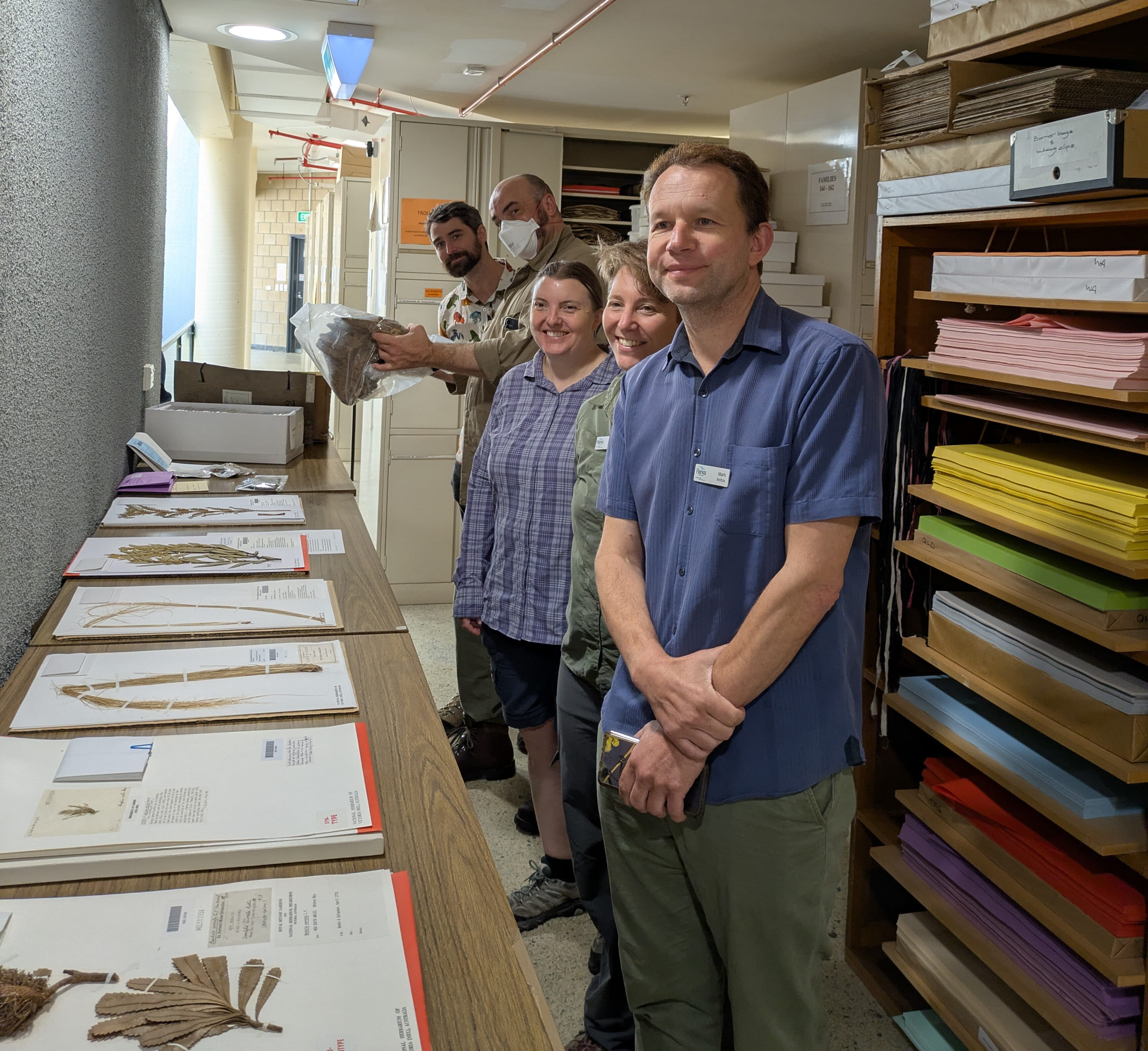Parks Victoria's Science and Knowledge team had onsite meetings with key conservation staff of the Royal Botanic Gardens (RBG) in Melbourne and Cranbourne earlier this year.
The team were treated to a behind-the-scenes tour of the herbarium and conservation programs. These were key meetings as staff working in the herbarium and conservation programs are often undertaking research and critical conservation works on Parks Victoria-managed land.
This can include:
- cataloguing biodiversity through herbarium collections
- establishing ex-situ collections and seedbanks
- studying plant ecology, like pollinator and symbiont relationships, and
- monitoring disaster response and recovery of threatened species
Additionally, we've been able to create more functional Access Agreement that will provide further cohesion and collaboration to our partnership.
Our Science and Knowledge team in the Royal Botanic Gardens' Herbarium. Credit: Parks Victoria
What is an Access Agreement?
A Research Activity Access Agreement is needed for any organisation or individual planning to conduct research on Parks Victoria managed land.
This agreement exempts researchers from certain park rules that would otherwise prevent them from conducting the research in a park or waterway. It also ensures that risks to park values, safety and park management operations that may arise from research activities are managed.
Our strengthened agreement with the Royal Botanic Gardens provides stronger guidance around permissible activities and collection limits, specifying that there needs to be close collaboration and transparency with our Science and Knowledge team.
"Ultimately, the new Access Agreement seeks to open communication channels about proposed activities, so that local teams are better supported," says Dr Floret Meredith, our Environmental Scientist – Flora.
"The types of activities and risks associated with these are detailed in Annexure A of the permit."
In coming weeks, the RBG is planning to submit several Planned Activities under AA-0002212; primarily centred around pollinator and soil mycorrhizal symbiont studies to support translocation or reintroduction of rare and threatened species. Many of these rare and threatened species are orchids!







